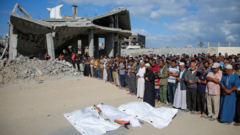President John Dramani Mahama has reaffirmed his administration’s commitment to closely partnering with the private sector in delivering Ghana’s 24-hour economy policy.
He revealed this during a multi-sectoral engagement at the Jubilee House, where he addressed business leaders, trade associations, and stakeholders from across the country.
According to the President, the support and alignment of private sector actors are not only welcome but essential to the success of the ambitious policy, which aims to transform Ghana’s economic structure through extended productivity and inclusive growth.
“This meeting is a crucial part of our national reset,” President Mahama said. “It concerns the rollout of the 24-hour economy policy, specifically the 24H Plus Programme and the Accelerated Export Development Framework, which many of you have already adopted and supported in many ways.”
Providing an overview of the vision, the President explained that the 24-hour economy policy is designed both as a long-term destination and a structured programme for immediate action.
“The 24-hour policy is both a destination and a programme,” he noted. “As a destination, the 24-hour economy reflects a state where Ghana’s productivity and capital utilisation will become so high that we’ll have to operate in multiple shifts across day and night, maximising the return on infrastructure, on human resources, and innovation.”
He added that the idea had gained strong public support during the 2024 election campaign and now stands at the centre of his administration’s strategy for full employment and sustainable growth.
Turning to implementation, the President revealed that he had reviewed the final draft of the 24-hour economic policy and expressed confidence in its readiness to deliver practical outcomes.
“Earlier this month, I received the complete draft of the 24-hour economic policy from my advisor, Mr Goosie Tanoh,” he stated. “I have reviewed it, and I’m confident we now have a coherent and actionable framework with which to deliver the results.”
He emphasised that while a stable macroeconomic environment provides the necessary foundation, the policy’s focus is squarely on boosting production, enterprise, job creation, and export competitiveness.
“At its core, it’s an integrated value chain transformation approach,” President Mahama said. “This approach addresses structural bottlenecks not in isolation, but comprehensively through infrastructure, finance, land systems, logistics, and skills development.”
He cited one of the flagship proposals, the development of the Volta Lake Economic Corridor, as an example of how the policy would reshape national production zones. The corridor, he said, will serve as a logistics hub and production base that leverages arable land and revitalises the fisheries and manufacturing sectors.
Beyond infrastructure, the President outlined how private sector involvement would be supported through targeted financing, land access, skill training, and incentives. He explained that the Ghana Infrastructure Investment Fund, the Development Bank of Ghana, and the Venture Capital Trust Fund will all play critical roles in supporting SMEs and cooperatives.
“To reduce delays and uncertainty for investors,” he added, “we will develop local land banks that are zoned, titled, and investment-ready.”
On the matter of human capital, he introduced a sub-programme dubbed Aspire24, which will prepare young people for shift-based work, digital opportunities, and entrepreneurship.
“We’ll also introduce tax reliefs on machinery and inputs, fast-track regulatory approvals, and provide export facilitation,” he said, assuring the business community of a conducive environment.
Crucially, he stressed that the rollout will not be top-down. Instead, he said, each district will have its own 24-hour implementation task force, anchored within the local assemblies, to tailor the policy to local needs and strengths.
“This is no longer just a vision,” the President declared. “It is a structured, sequenced, and inclusive plan, and its implementation is beginning.”
He also revealed plans to publicly release the draft programme document on Tuesday for broader consultation and invited stakeholders to help finalise it. The official launch is scheduled for July, most likely on Republic Day, which he described as a symbolic moment for national renewal.
Read also: Mahama outlines bold initiatives, says 24-hour economy policy rolls out in July
To ensure long-term stability and investor confidence, President Mahama announced plans to work with Parliament to establish the 24-hour economy secretariat as an independent authority backed by legislation.
He concluded by thanking participants for their support and confidence in the new direction.
“The 24-hour economic policy is not just a policy,” he said. “It is a national compact for shared growth, for decent jobs, for competitive exports, for thriving local economies, and long-term prosperity. Let us make Ghana a nation where opportunity never sleeps,” the President said.
DISCLAIMER: The Views, Comments, Opinions, Contributions and Statements made by Readers and Contributors on this platform do not necessarily represent the views or policy of Multimedia Group Limited.
DISCLAIMER: The Views, Comments, Opinions, Contributions and Statements made by Readers and Contributors on this platform do not necessarily represent the views or policy of Multimedia Group Limited.




